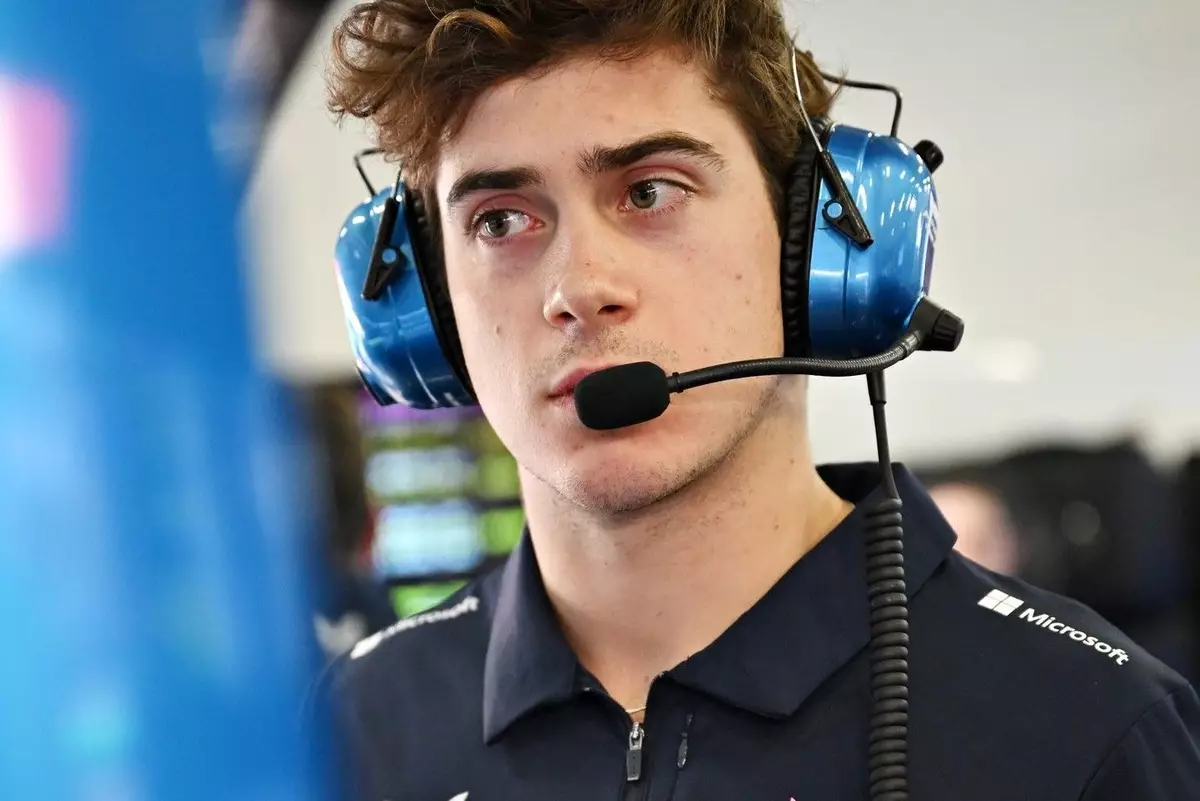Triumph in Turbulence: Franco Colapinto’s Ascendancy in Formula 1
There’s something electrifying about witnessing a young talent like Franco Colapinto stepping into the high-octane world of Formula 1. This weekend, as he returns to the grid, the stakes are undeniably high. Having taken over Jack Doohan’s seat at Alpine, Colapinto faces a whirlwind of challenges in an environment rife with turbulence. The team, once a beacon of innovation, has become emblematic of operational chaos since Renault reacquired it in 2016. Despite these obstacles, Colapinto’s journey promises to be a thrilling narrative of resilience and determination.
For those who follow Formula 1 closely, the name Flavio Briatore is not unfamiliar. His re-emergence as an “executive advisor” at Alpine adds another layer to this ongoing saga. With Oliver Oakes temporarily filling in as team principal before his sudden departure, questions abound about the team’s stability. Rumors swirling around Oakes’s exit suggest connections to legal troubles involving his brother, deepening the aura of instability. In such a chaotic environment, only a driver with immense resilience can hope to thrive. Yet it is precisely this challenging backdrop that might serve as the perfect catalyst for Colapinto’s growth.
Key Takeaways
- Franco Colapinto steps into a turbulent yet opportunity-rich environment at Alpine.
- Support systems play an essential role in navigating high-pressure situations.
- Colapinto’s move could redefine narratives and challenge norms in Formula 1.
The Essential Role of Support Systems
James Vowles, the team principal at Williams where Colapinto honed his skills, remains a steadfast supporter. He emphasizes that while Alpine’s situation is undeniably turbulent, the team’s commitment to its drivers will not falter. “They will be supportive to Pierre [Gasly] and Franco,” Vowles asserts, highlighting the importance of unwavering backing for elite athletes in high-pressure environments. This insight reframes Colapinto’s experience at Alpine not merely as a challenge but as an opportunity for significant personal and professional development.
Vowles champions a philosophy rooted in resilience—a belief that navigating through adversity ultimately enhances a driver’s capabilities. “It’s time on track; it’s time in a difficult environment,” he states confidently. Colapinto’s inherent strengths coupled with this form of adversity could energize his performance, making him more formidable in the long run. This perspective underscores the importance of supportive frameworks and redefines adversity in competitive sports as a transformative force rather than just an obstacle.

The Quest for Stability Amid Uncertainty
Despite showcasing impressive speed during his time with Williams, Colapinto’s prospects of continuing with the team were slim due to contractual complications involving Carlos Sainz. Transitioning to Alpine wasn’t just about seizing an opportunity; it was a strategic maneuver akin to a high-stakes chess game. As Vowles remarked, working with Alpine was a necessity-born strategy that offers Colapinto a “window” of just five races to prove himself. Even amidst uncertainty, Vowles remains optimistic; he sees Alpine as the best path for Colapinto’s emerging career.
The audacity required for a driver to step into such an uncertain environment is admirable, yet it’s clear that Colapinto possesses the drive necessary to flourish. His previous performances and rapid adaptation signal that he has what it takes to succeed amidst adversity. This bold transition may well spark a transformative journey—not only for Colapinto but for the Alpine team itself as it strives to regain its competitive edge.
Challenging Norms and Defying Expectations
Colapinto’s situation holds potential to redefine narratives within Formula 1. While common perceptions favor well-structured teams with minimal upheaval, history often favors those daring enough to challenge norms. In competitive environments, it’s frequently the untested yet tenacious individual who emerges victorious by turning chaos into advantage. As Colapinto steps into this cockpit amid uncertainties, all eyes are on whether he can not only withstand pressures but transform them into pathways for success.
The lessons learned through these experiences will undoubtedly contribute to both his career trajectory and Alpine’s legacy, potentially reviving its fortunes over time. In a sport where a single mistake can lead to dramatic consequences, flexibility paired with dedicated support can prove invaluable. Viewed through this lens, Colapinto’s upcoming endeavors represent more than personal success; they signal potential revitalization for a team mired in disorder.

Final Thoughts
As Franco Colapinto prepares to take on one of his most challenging roles yet at Alpine, he embodies the spirit of resilience and ambition that defines Formula 1 racing. While the path ahead is fraught with uncertainties and hurdles, it’s also filled with possibilities waiting to be seized. In this dynamic world where every detail matters and adaptability is key, Franco’s journey could very well inspire both seasoned fans and newcomers alike. As lights go out this weekend, all eyes will be on him—eagerly anticipating how this chapter unfolds.
Formula 1
Franco Colapinto
Alpine F1 Team


Leave a Reply